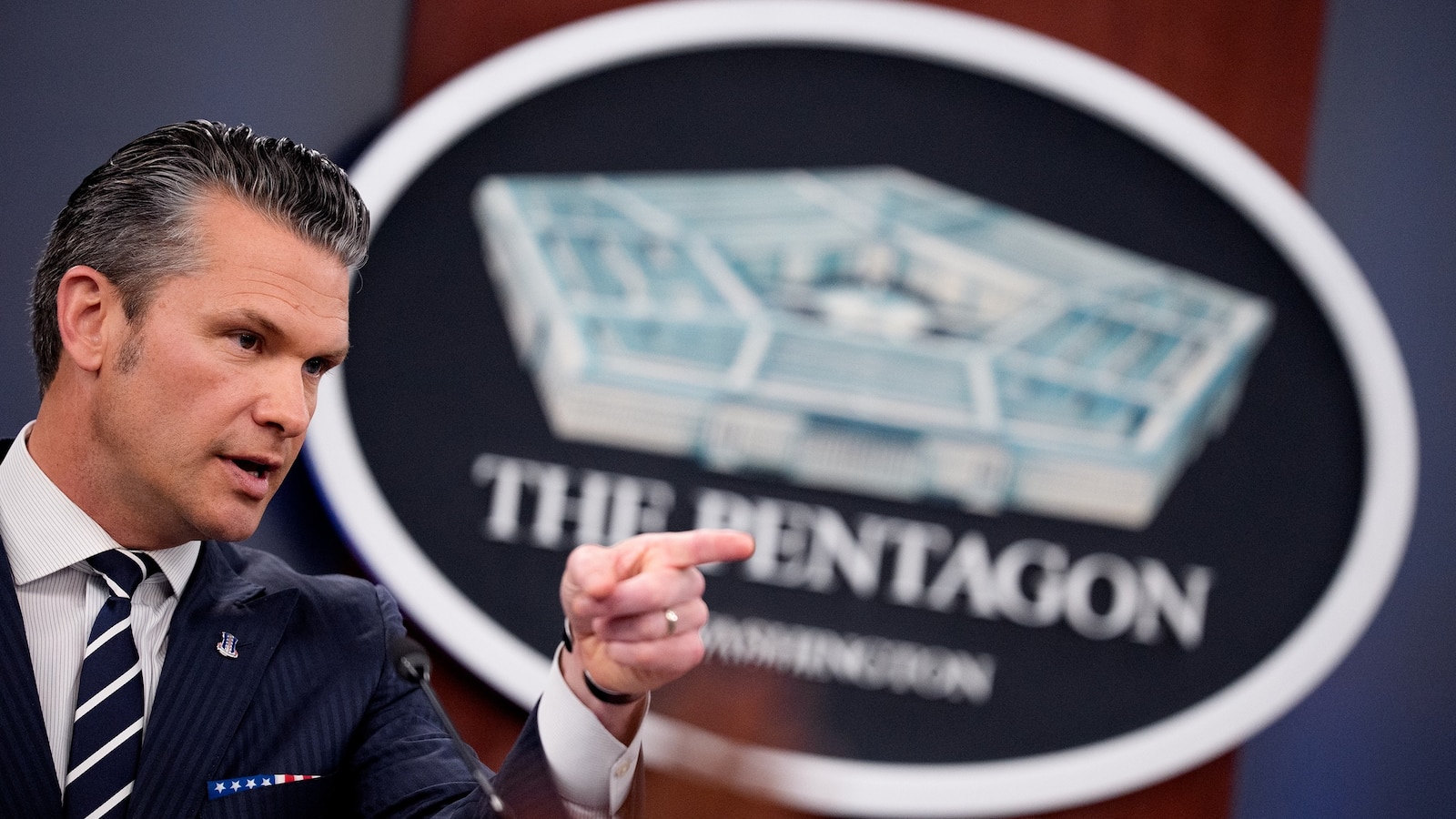In the hours after its military strikes on Iranian nuclear sites, U.S. officials suggested Iran ought to embrace a diplomatic off-ramp rather than choosing to retaliate.
“Iran, the bully of the Middle East, must now make peace,” President Donald Trump said late Saturday in an address to the nation, flanked by Vice President Vance, Secretary of State Marco Rubio and Defense Secretary Pete Hegseth.
“This cannot continue. There will be either peace or there will be tragedy for Iran far greater than we have witnessed over the last eight days,” Trump said.
U.S. officials on Sunday morning doubled down on the president’s message, calling for a diplomatic process and threatening Iran with additional military action should it choose to retailiate for the U.S. attack.

Defense Secretary Pete Hegseth speaks during a news conference at the Pentagon, June 22, 2025 in Arlington, Virginia.
Andrew Harnik/Getty Images
Vance suggested the U.S. was not interested in a broader war or a conflict beyond its strikes on the Iranian nuclear program.
“We’re not at war with Iran; we’re at war with Iran’s nuclear program,” Vance said on ABC News’ “This Week.”
At a Pentagon news conference, Hegseth said the nuclear program was “the line the president set” and that the “overwhelming” military action should invite peace.
“Iran, in that sense, has a choice,” Hegseth said. “But we’ve made it very clear to them — this is nuclear sites, this is nuclear capabilities. This is the line that the president set, and we set that back.”
“Now is the time to come forward for peace,” he said.
The defense secretary did not clarify any potential parameters for negotiations but said the U.S. was sending messages directly to Iran and “giving them every opportunity to come to the table.”
“They understand precisely what the American position is, precisely what steps they can take to allow for peace, and we hope they do so,” he said.
Hegseth said the scope of the U.S. attack — which struck three nuclear sites including the uranium enrichment facility located deep underground in Fordo — was “intentionally limited” and not aimed at “regime change.”
Trump ordered that the offensive “is most certainly not open-ended,” Hegseth said, calling the attack “a focused, powerful and clear mission on the destruction of Iranian nuclear capabilities.”
“Those were the targets. That’s what was struck. That was overwhelming,” the defense secretary said.
Hegseth and Gen. Dan Caine, the chairman of the Joint Chiefs of Staff, told reporters at the Pentagon on Sunday that the U.S. was prepared for a potential response from Iran.
Caine said “any Iranian retaliation or proxy attacks…would be an incredibly poor choice,” and Hegseth noted U.S. and allies’ assets near Iran.
The secretary said the strikes — which included 14 massive ordnances flown by seven stealth bombers — “devastated” their targets and left Tehran’s nuclear ambitions “obliterated.”
Caine said a damage assessment was “way too early” to report, but said the operation had “severely damaged” the targeted facilities.
The president suggested Saturday that Iranian retaliation would amount to an escalation and would warrant U.S. attacks which would be “far worse” than the strikes on nuclear sites.
Instead, Trump, Vance, Rubio and Hegseth are signaling to Iran that it should return to the negotiating table to discuss Iran’s nuclear program.
The U.S. and Iran held five rounds of diplomatic talks — with a sixth round scheduled — before Israel attacked Iran last week and the U.S. joined with strikes of its own on Saturday.
“I think it is irrelevant to ask Iran to return to diplomacy because we were in the middle of diplomacy,” Iranian Foreign Minister Abbas Araghchi said Sunday.
“We were in the middle of talks with the United States when [the] Israelis blew it up. And again, we were in the middle of talks and negotiation with Europeans, [which] happened only two days ago in Geneva, when this time Americans decided to blow it up,” he said,– referencing his hastily arranged meetings with European leaders on Friday.
“So we were in diplomacy. But we were attacked,” he added.
Rubio, America’s top diplomat, characterized those talks as delaying tactics by Tehran.
“They play too many games,” he said Sunday on Fox News. “They use diplomacy to hide behind and obfuscate and think they can buy themselves time. They think they’re cute, they’re not cute, and they’re not going to get away with this stuff, not under President Trump.”
Rubio said repeatedly that regime change was not the objective of the attacks, but he suggested a renewed Iranian nuclear buildup would change Washington’s calculus.
“If Iran is committed to becoming a nuclear-weapons power, I do think it puts the regime at risk. I think it would be the end of the regime if they tried to do that,” he said.

